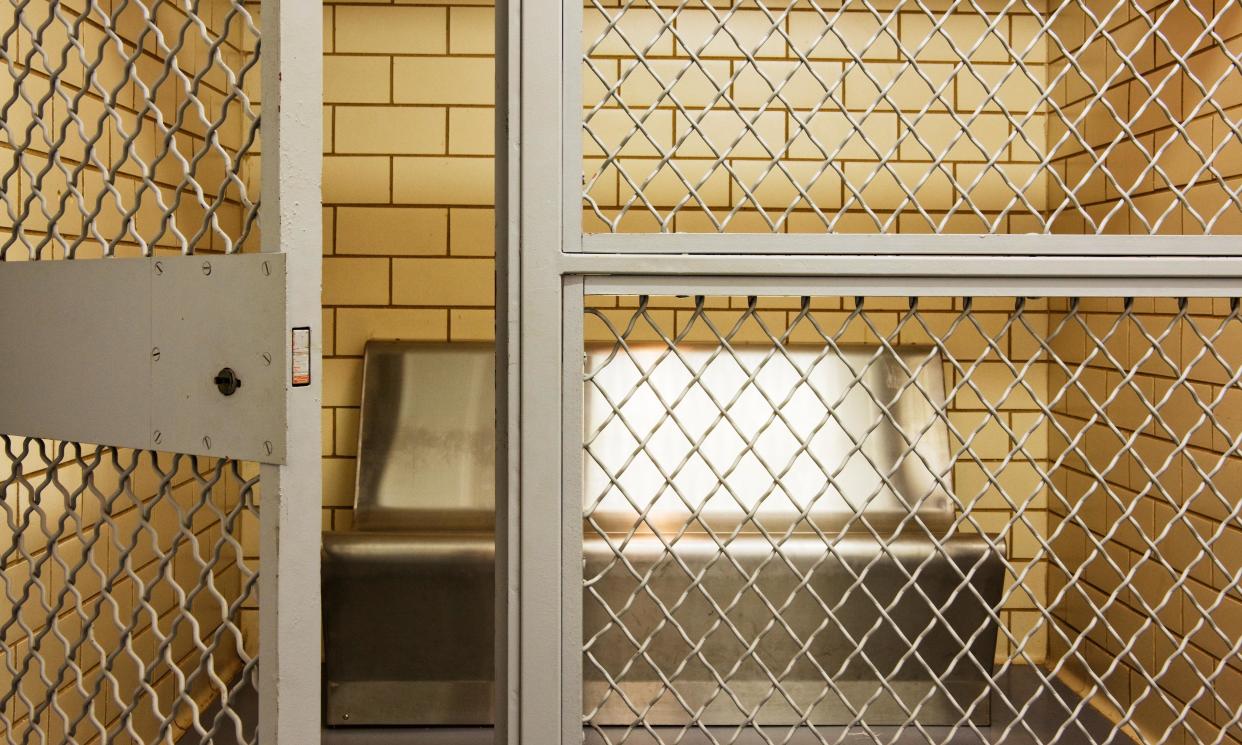Advocates say 22 Texas inmates still on hunger strike but state disputes figure

Prisoners in Texas who have been kept in solitary confinement in some cases for more than 20 years are sustaining a hunger strike in protest against their brutal form of incarceration in the face of threatened retaliation from state authorities.
Outside advocates working with the protesting inmates say that in their latest count 22 men continue to refuse food, with two of them having been on hunger strike since the start of the action on 10 January.
A spokesperson for the Texas department of criminal justice (TDCJ) disputed those figures, saying they were aware of only six striking men, none of whom had protested from the start.
The action is directed against the widespread use by Texas of solitary confinement, in which male inmates are locked up in isolation for 22 hours or more a day as a means, the authorities say, of disrupting gangs. There are currently more than 3,000 prisoners held in “restrictive housing”, as the state refers to solitary – 138 of whom have been there for more than 20 years.
Texas has by far the largest number of prisoners held in isolation for more than a decade in any state in the union. All condemned prisoners on death row are also permanently held in isolation, and a class-action lawsuit was lodged last month calling for an end to such “cruel and unusual punishment”.
Messages sent by inmates participating in the hunger strike describe measures taken by the prison staff to disrupt the action, including threats of retaliation and forceful cell searches. Joshua Sweeting, one of the lead advocates of the protest who is currently refusing food in the Coffield Unit, a TDCJ prison in Anderson county, Texas, said that his cell had been searched three times in recent days.
“It’s 5.31am. They just ran up to my cell with gas mask on and pulled me out, tore my cell up,” he wrote in one message. He was held in a 2ft by 2ft vertical cage known as a “legal cell” for about an hour while the search was conducted.
“Came back and my property was all over my cell. They took my pictures and some paper work. Sure it is retaliation.”
Sweeting said there were 13 men on his wing who had returned to the hunger strike after a break. He said the repeated searches of his cell, and the destruction of his personal possessions, “only strengthen my will. It also shows others exactly why we are protesting in the first place. We’re simply asking to be heard and doing it very peacefully.”
Organisers of the hunger strike have presented the prison authorities with a set of demands. As a priority, they want an end to solitary confinement being used as a form of control against prison gangs in which anyone suspected of gang affiliation is placed in isolation indefinitely.
Instead, the strikers say, solitary should be reserved only for prisoners who are a real and present danger to themselves or others, based on actual behaviour.
In his messages, Sweeting said that the prisoners were suspicious of the TDCJ’s intentions. “We’ve been lied to for so long that we can’t just except ‘promises’,” he said. “We simply want them to honor their word.”
Brittany Robertson, an outside representative for the hunger strikers, said that the men wanted access to information that they were currently denied that would prepare them for rehabilitation and return to society.
“They are asking for equal access to religious programming, job search apps, and so on, so they can better themselves,” she said.
Robertson said that in addition to repeated cell searches, participants in the action had been denied family visits and threatened with force feeding.
Amanda Hernandez, TDCJ’s director of communications, told the Guardian that “no penalties or threats were used. No concessions have been made.” She said that indefinite solitary confinement, or “security detention” was used judiciously by the department “to enhance staff and inmate safety”.
Hernandez added: “Inmates who are confirmed members of the most organized and dangerous prison gangs” were incarcerated in isolation, along with prisoners who were escape risks and those who committed assaults or other serious offenses while inside.
Amite Dominick, founder of the Texas Prisons Community Advocates which works with inmates and their families, said the hunger strike was the product of extreme conditions that were putting prisoners’ mental health and lives at risk. “These individuals are so desperate,” she said.
“They have been pleading and pleading, and no one has heard them cry. Texas is the most punitive state when it comes to solitary confinement. We are archaic in the way we treat human beings, and our legislators and the authorities are doing nothing to fix it.”

 Yahoo Movies
Yahoo Movies 
